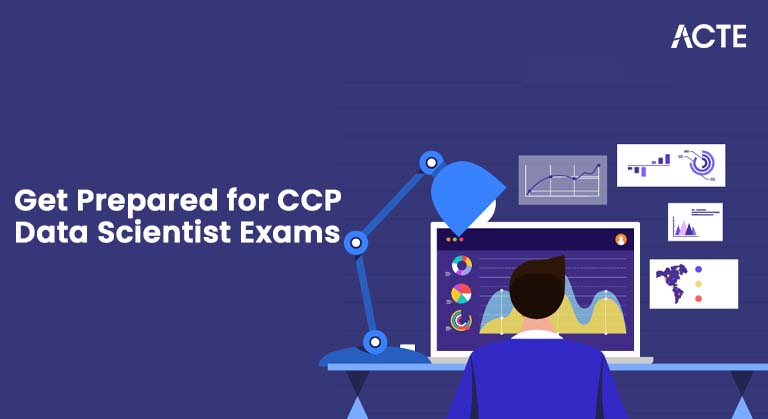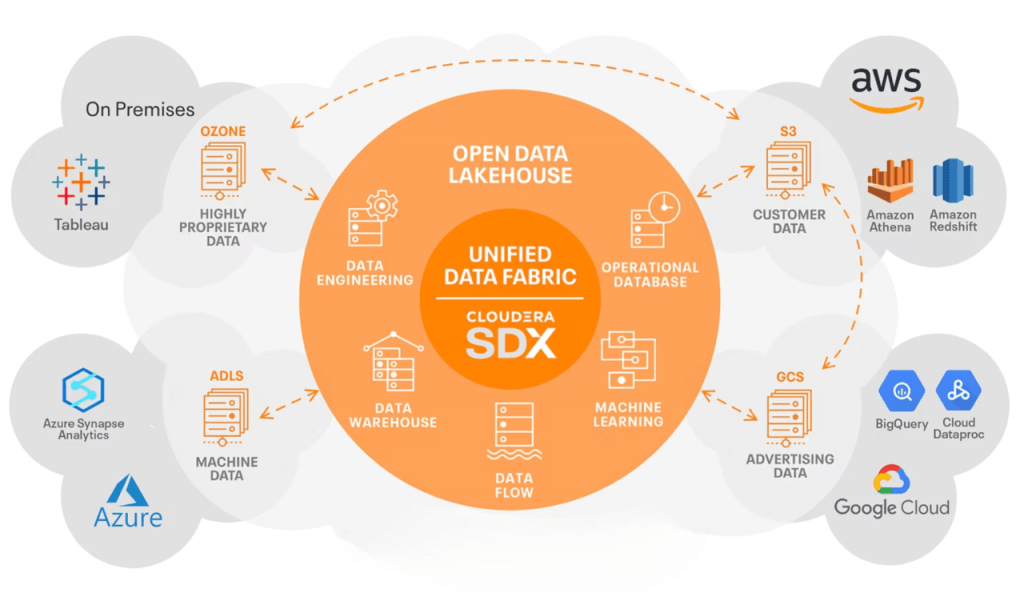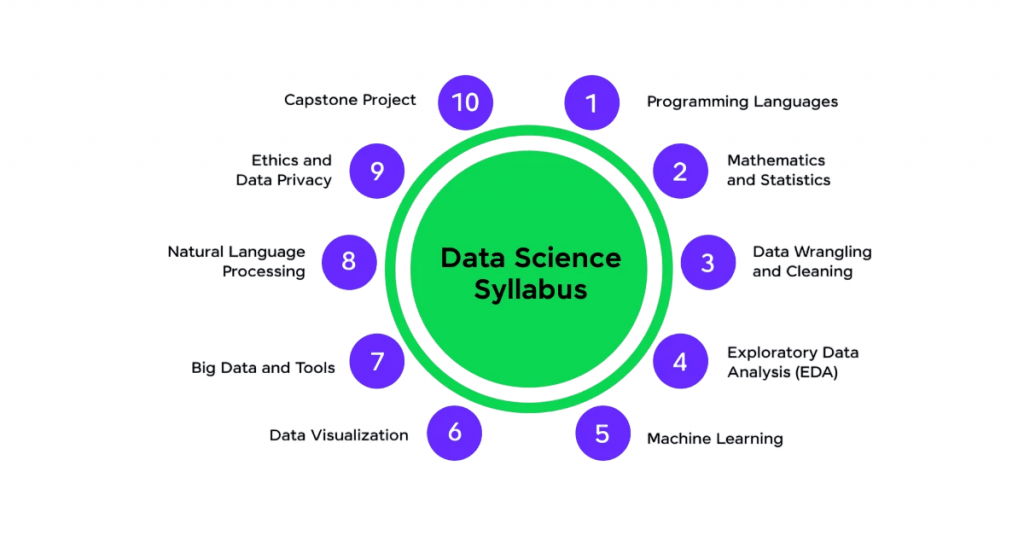
- Introduction to CCP Data Scientist Certification
- Overview of Cloudera’s CCP Exam Structure
- Eligibility and Prerequisites
- Exam Syllabus and Domains
- Core Technologies (Hadoop, Spark, Hive, etc.)
- Recommended Learning Path
- Study Materials and Resources
- Practical Preparation Tips
- Hands-on Practice Projects
- Common Mistakes and How to Avoid Them
- Test Day Tips and Logistics
- Career Impact and Certification Value
- Conclusion
Introduction to CCP Data Scientist Certification
The Cloudera Certified Professional (CCP) Data Scientist certification is a globally recognized credential for data professionals who aim to validate their ability to analyze complex data sets using advanced tools and big data technologies. Offered by Cloudera, a leader in enterprise data cloud services, the CCP Data Scientist certification demonstrates an individual’s capacity to solve real-world business problems using a combination of machine learning, statistical techniques, and data engineering practices. It is designed for experienced data scientists who want to prove their technical skills in handling large-scale data processing tasks.As businesses around the globe rely increasingly on Data Manipulation for strategic decision-making, certifications such as CCP have become critical for professionals looking to showcase their competency in this competitive domain cloud computing. The certification bridges the gap between academic knowledge and practical industry mock Exams applications, positioning certified individuals as highly capable and reliable professionals in the job market.
Would You Like to Know More About Web Developer? Sign Up For Our Web Developer Courses Now!
Overview of Cloudera’s CCP Exam Structure
The CCP Data Scientist exam is known for its rigorous, performance based format. Unlike traditional multiple choice exams, this certification evaluates candidates through hands on tasks and real world case studies.

Eligibility and Prerequisites
While Cloudera does not mandate specific prerequisites to sit for the CCP Data Scientist exam, it strongly recommends a solid foundation in data science, machine learning, and big data technologies. Candidates are expected to have at least a few years of hands-on experience working with large datasets and distributed computing environments. Recommended skills and knowledge areas include:
- Proficiency in programming languages such as Python, R, or Scala.
- Familiarity with big data frameworks like Hadoop, Spark, and Hive.
- Understanding of machine learning algorithms and statistical modeling.
- Experience with data wrangling, feature engineering, and model evaluation.
- Ability to work with SQL and NoSQL databases.
- Comfort with Linux command line and shell scripting.
Although formal education in computer science or data science is advantageous, practical experience carries significant weight. Many successful candidates come from a variety of backgrounds but share a common thread of hands-on experience in data-driven problem-solving.
Exam Syllabus and Domains
The CCP Data Scientist exam covers a wide range of topics that span the full data science lifecycle. The domains are designed to assess a candidate’s ability to: Understand and define business problems.
- Collect, clean, and preprocess data.
- Build and evaluate predictive models.
- Apply statistical and machine learning techniques.
- Interpret and communicate results effectively.

- Data Ingestion and Processing: Extracting and loading data using tools like Apache Sqoop, Flume, or Spark. Candidates must be able to handle data from various sources such as relational databases, logs, and APIs.
- Exploratory Data Analysis (EDA): Summarizing the data, identifying patterns, missing values, and outliers. Tools like Pandas, R, and Spark DataFrames are typically used.
- Feature Engineering: Creating new features, encoding categorical variables, normalizing, scaling, and selecting relevant features.
- Machine Learning and Modeling: Developing regression, classification, clustering, and recommendation models. Candidates are expected to tune hyperparameters and evaluate models using accuracy, AUC, precision-recall, etc.
- Model Deployment and Evaluation: Understanding how to package models for deployment, performing A/B testing, and tracking model performance over time.
- Business Insight and Communication: Presenting findings through visualizations and reports, using tools like matplotlib, seaborn, or Tableau.
- Apache Hadoop: The foundation of distributed data storage and processing. Candidates should understand HDFS architecture and MapReduce principles.
- Apache Spark: A core technology for in-memory data processing. Proficiency in PySpark or SparkR is crucial, especially for machine learning tasks using MLlib.
- Apache Hive: Used for querying and managing large datasets stored in Hadoop. Candidates should be comfortable with HiveQL and its integration with Spark.
- Apache Impala: A massively parallel processing SQL engine that allows fast SQL queries on data stored in HDFS.
- Apache Oozie: A workflow scheduler for managing Hadoop jobs, useful for automation.
- Cloudera Data Science Workbench (CDSW): Often used as the test environment for the CCP exam. Familiarity with its interface and capabilities is beneficial.
- Review Fundamentals: Begin with core data science and machine learning concepts. Books like “Hands-On Machine Learning with Scikit-Learn, Keras, and TensorFlow” by Aurélien Géron are highly recommended.
- Big Data Tools Mastery: Enroll in specialized courses focusing on Hadoop, Spark, Hive, and related tools. Platforms like Coursera, Udacity, and Cloudera’s own training portal offer structured content.
- Project-Based Learning: Practice real-world projects such as customer churn prediction, fraud detection, or sentiment analysis using big data.
- Advanced Topics: Dive into distributed machine learning, data pipeline orchestration, and streaming analytics using Kafka or Spark Streaming.
- Mock Exams and Timed Challenges: Regularly assess your skills through online challenges and simulated test environments.
- Cloudera Training: Cloudera offers a comprehensive training course for the CCP Data Scientist path, including hands-on labs and case studies.
- Books: “Designing Data-Intensive Applications” by Martin Kleppmann“Data Science from Scratch” by Joel Grus.“Machine Learning Yearning” by Andrew Ng (free)
- MOOCs: Big Data Specialization by UC San Diego on Coursera.Apache Spark and Scala Certification Training by Edureka.
- Blogs and Forums: Medium, Towards Data Science, Stack Overflow, and Cloudera Community.
- GitHub Repositories: Open-source projects and example notebooks for practice.
- Kaggle: Participate in competitions and explore datasets to improve analytical thinking.
- Set Up a Personal Lab: Create a development environment using Docker or a cloud platform like AWS to simulate the exam setup.
- Practice with Big Data Volumes: Work with large datasets (100GB+ if possible) to get accustomed to real-world data processing challenges.
- Automate Tasks: Use bash scripts and Python notebooks to automate data loading, transformation, cloud computing and analysis workflows.
- Work on Cross-Domain Projects: Engage in diverse domains such as healthcare, finance, and e-commerce to broaden your problem-solving experience.
- Time Your Projects: Practice solving end-to-end problems within 4–8 hours to simulate exam conditions.
- Credit Risk Modeling: Build models to assess the probability of default using financial and behavioral data.
- Customer Segmentation: Use clustering algorithms on customer demographics and transactions to identify patterns.
- IoT Sensor Analytics: Analyze time-series data from sensors using Spark Streaming.
- Clickstream Analysis: Mine user interaction data from web logs to understand behavior and optimize marketing.
- Text Classification: Perform sentiment analysis or topic modeling on product reviews using NLP techniques.
- Skipping the Problem Definition: Jumping into code without clearly understanding the business objective leads to irrelevant solutions. Always clarify the problem first.
- Overfitting Models: Complex models without validation can perform poorly on new data. Use cross-validation and regularization techniques.
- Inefficient Code: Unoptimized Spark jobs can run slowly or crash. Use proper caching, partitioning, and memory management.
- Ignoring Data Quality: Failure to clean and validate data results in misleading insights. Always check for nulls, duplicates, and outliers.
- Poor Documentation: The exam includes reporting. Make sure your notebooks and scripts are well-commented and structured.
- Check System Requirements: Ensure your internet connection, webcam, and browser are compatible with Cloudera’s proctoring tools.
- Rest Well: Get a good night’s sleep before the exam to stay alert and focused.
- Prepare a Cheat Sheet: While you cannot bring notes, summarizing key concepts beforehand will help reinforce your memory.
- Plan Your Time: Allocate fixed blocks for each task, with buffer time for review.
- Backup Regularly: Save your work frequently to avoid data loss due to connectivity issues.
- Senior Data Scientist
- Big Data Engineer
- Machine Learning Engineer
- Data Science Consultant
- AI/ML Architect According to industry surveys, certified data management professionals often earn 20–30% more than their non-certified peers. Beyond salary, the certification opens doors to leadership roles, speaking engagements, and contributions to open source communities. Organizations value Cloudera certified professionals because the certification reflects real world competence, not just theoretical knowledge. It’s particularly valuable in industries that deal with large-scale Data Manipulation such as finance, healthcare, e-commerce, telecommunications, and logistics.
Are You Interested in Learning More About Web Developer? Sign Up For Our Web Developer Courses Today!
Core Technologies (Hadoop, Spark, Hive, etc.)
The exam focuses heavily on open-source big data tools, particularly those within the Hadoop ecosystem. Familiarity with the following technologies is essential:
Recommended Learning Path
A strategic learning path is essential for CCP certification success. Candidates should aim to build a strong theoretical foundation followed by extensive hands-on practice.
Study Materials and Resources
To prepare effectively, leverage a combination of the following resources:
Do You Want to Learn More About Web Developer? Get Info From Our Web Developer Courses Today!
Practical Preparation Tips
Success in the CCP exam relies more on applied knowledge than theoretical memorization. Here are some practical preparation strategies:
Hands-on Practice Projects
Real-world projects are the best way to build the confidence needed for the CCP exam. Here are a few recommended practice projects:
Common Mistakes and How to Avoid Them
Many candidates make avoidable errors that hinder their performance. Here are some pitfalls and tips to prevent them:
Test Day Tips and Logistics
Being prepared for the logistics of exam day is just as important as technical preparation:
Career Impact and Certification Value
Earning the CCP Data Scientist certification can significantly boost your career. It enhances your resume, validates your skills to employers, and often leads to better job opportunities and higher salaries. Certified professionals are sought after for roles such as:
Conclusion
The Cloudera Certified Professional (CCP) Data Scientist certification is a challenging yet rewarding milestone for any Data Manipulation professional cloud computing. It mock Exams your ability to solve practical problems using cutting-edge tools and methodologies. With the right preparation, hands-on experience, and strategic planning, earning this credential can elevate your career and establish you as a trusted expert in the field of data management. Whether you’re aiming for a career transition or looking to solidify your expertise, the CCP certification is a worthy investment in your professional journey.





